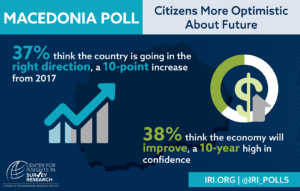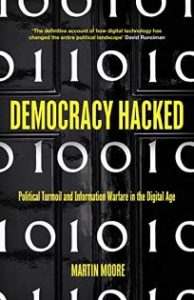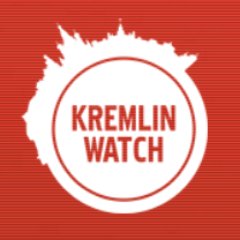United States officials say they intercepted communications in June showing that Greek-Russian billionaire Ivan Savvidis was working as Russia’s conduit to undermine an agreement between Greece and Macedonia that would have paved the way for Macedonia to join the North Atlantic Treaty Organization. Greece has long objected to Macedonia’s entry into NATO. Moscow, which sees the expanding alliance as a major threat on its border, was determined to defeat a referendum on the deal, The New York Times reports:
 In retaliation, American officials made an unusually aggressive move: They turned over the intercepts to the left-leaning Greek government of Prime Minister Alexis Tsipras. The Greek government responded by making a rare break with Moscow, expelling two Russian diplomats from Athens and barring the entry of two more.
In retaliation, American officials made an unusually aggressive move: They turned over the intercepts to the left-leaning Greek government of Prime Minister Alexis Tsipras. The Greek government responded by making a rare break with Moscow, expelling two Russian diplomats from Athens and barring the entry of two more.
Although a referendum vote last month in Macedonia on the agreement was inconclusive — the Macedonian Parliament must now decide, perhaps as early as this week, whether the country joins the Atlantic alliance — American officials see the exposure of Mr. Savvidis and the expulsion of the diplomats as a rare victory in a catch-up effort against Russian disinformation campaigns in Europe and the United States….
 According to the Organized Crime and Corruption Reporting Project, an investigative reporting organization [supported by the National Endowment for Democracy], Mr. Savvidis paid opponents of the campaign to rename Macedonia at least 300,000 euros, or about $350,000.
According to the Organized Crime and Corruption Reporting Project, an investigative reporting organization [supported by the National Endowment for Democracy], Mr. Savvidis paid opponents of the campaign to rename Macedonia at least 300,000 euros, or about $350,000.
Election observation missions (EOMs) are better resourced and more sophisticated than ever before. But so are the rulers who seek to subvert democratic processes through misinformation and other techniques, according to Marta Martinelli, head of EU external relations, and advocacy specialist Bram Dijkstra, both of the Open Society European Policy Institute. They suggest several reforms, including observing the democracy as a whole and not just the election, in the EU Observer:
 International observers operate during elections and are unable to monitor activity between ballots. Local observers and civic groups on the ground can be utilised more widely and more smartly, ensuring that the breadth and scope of their knowledge is used to improve election integrity….
International observers operate during elections and are unable to monitor activity between ballots. Local observers and civic groups on the ground can be utilised more widely and more smartly, ensuring that the breadth and scope of their knowledge is used to improve election integrity….- Continued and more flexible funding, protection and public support and consultation are needed to promote cooperation between local civil society and the international community.
- The use and misuse of social media in political campaigning is growing in importance and sophisticated disinformation campaigns pose a threat to electoral integrity both abroad and at home.
- Observers need to be better aware of technological advances, and observation guidelines on media monitoring need to be boosted to include the online space.
Next week’s EU conference on election security and digital interference is a first dedicated opportunity to take on these challenges, they add.
Over the past month, the investigative group Bellingcat has published a series of reports unmasking the Russian men who the British say traveled to Salisbury in March, poisoning a former spy, Sergei V. Skripal, and his daughter, Yulia. Bellingcat was founded by blogger Eliot Higgins in July 2014, three days before a surface-to-air missile blew a Malaysia Airlines passenger jet out of the sky over Ukraine, killing all 298 people on board, The Times adds:
 Russia and Ukraine, locked in conflict over a separatist Ukrainian region, blamed each other for the tragedy. Initially, Mr. Higgins said he approached his investigation “with an open mind.”…Using videos and photos gathered online, he and a group of investigators were eventually able to identify the mobile launcher that fired the missile that struck the passenger jet and trace its movement from Russia into rebel-held Ukrainian territory in the period before the jet was downed. The group has since identified two Russian military intelligence commanders possibly involved in overseeing the delivery of the missile launcher to Ukranian rebel territory.
Russia and Ukraine, locked in conflict over a separatist Ukrainian region, blamed each other for the tragedy. Initially, Mr. Higgins said he approached his investigation “with an open mind.”…Using videos and photos gathered online, he and a group of investigators were eventually able to identify the mobile launcher that fired the missile that struck the passenger jet and trace its movement from Russia into rebel-held Ukrainian territory in the period before the jet was downed. The group has since identified two Russian military intelligence commanders possibly involved in overseeing the delivery of the missile launcher to Ukranian rebel territory.
“This is a new frontier in terms of internet activism, or internet research,” said Jonathan Eyal, associate director of the Royal United Services Institute, a security and defense policy group. “What you witnessed in the House of Parliament is a blurring of distinctions: States are increasingly losing their monopoly over spying. Now it belongs to anyone who has the brains, the spunk and the technological ability.”

CSIS
A recent intervention serves as an example of how Russian trolls attempt to shift the public debate through their online behavior, according to Heather A. Conley, Director of the CSIS Europe Program, and Holly Geffs, CSIS Program Coordinator and Research Assistant. They provide a snapshot of how malign Russian influence can amplify divisions in democratic societies.
 Russian GRU officers attempted to hack the organization investigating the Skripal poisoning, the Alliance for Securing Democracy adds:
Russian GRU officers attempted to hack the organization investigating the Skripal poisoning, the Alliance for Securing Democracy adds:
On October 4, the Netherlands announced that it expelled four Russian military intelligence directorate (GRU) officers in April for attempting to carry out a cyber-attack on the Organization for the Prohibition of Chemical Weapons, the chemical weapons watchdog overseeing the investigation related to the Skripal poisoning. Aided by British intelligence officials, Dutch intelligence apprehended the Russian spies with incriminating evidence, including specialist hacking equipment. In a coordinated response, the United States indicted seven officers of the GRU, including those linked to the failed operation in The Hague, for “International Hacking and Related Influence and Disinformation Operations.” The indictment revealed the GRU’s involvement in a series of other cyber-attacks,
The Russian Orthodox Church has become extremely political and seeks to extend the Kremlin’s soft power and geopolitical influence, says a new report from Kremlin Watch. Despite its allegedly independent legal and religious status, the Orthodox Church of the Czech Lands and Slovakia continues to remain a victim of the ecclesiastical hegemony of the Russian Orthodox Church, it notes:
 The Orthodox Church of the Czech Lands and Slovakia has acted as an extension of its Russian counterpart ever since it was hijacked by Soviet “liberators” following WWII. It continues to receive support from numerous Russian organizations and itself promotes a pro-Kremlin and anti-Western worldview in line with the concept of Russkiy Mir and Russian disinformation efforts aimed at presenting the Putin regime as an open and legitimate government. RTWT
The Orthodox Church of the Czech Lands and Slovakia has acted as an extension of its Russian counterpart ever since it was hijacked by Soviet “liberators” following WWII. It continues to receive support from numerous Russian organizations and itself promotes a pro-Kremlin and anti-Western worldview in line with the concept of Russkiy Mir and Russian disinformation efforts aimed at presenting the Putin regime as an open and legitimate government. RTWT
A panel at the Atlantic Council’s #StratCom conference (above) was titled Beyond Europe: How Disinformation Campaigns Affect Democracies Globally.
Brookings Fellow Alina Polyakova (below) discusses the disinformation and political warfare tools hostile actors in Russia and elsewhere are using to influence elections.







